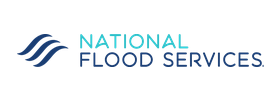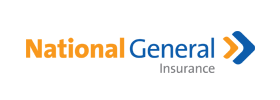Congratulations! Your child (technically, now an adult) just graduated college and is embarking on the transition into real adult life. For new college graduates, it’s an exciting time filled with many “firsts.” They are starting to search for their first professional job, look for their first place, and maybe purchase their first new vehicle.
In all the transitions, it’s easy to overlook an important detail—insurance. While considering insurance is certainly not as thrilling as those other significant “firsts,” it is a necessary step to help manage financial losses.
Here are three insurance coverages your new college graduate should explore:
#1 – Renter’s Insurance
Until now, your college graduate may have lived in a dorm room or shared housing with other students. Now, it’s time for them to consider making a home in their first apartment.
New renters often don’t understand that the landlord’s insurance does not cover their belongings. Should they experience an unforeseen situation – like a burglary, stormy weather that causes a leaky roof to destroy their furnishings, or small fire that creates smoke damage – they need to be protected. Renter’s insurance protects them from losing everything they are working so hard to obtain.
It’s a good idea for them to create a list of their belongings inside the apartment, placing an approximate value on each item. From electronics to linens and clothing to dishes, every piece adds up—and fast, if it all needs to be replaced. The total is the suggested amount of renter’s insurance they should purchase.
#2 – Auto Insurance
Many college graduates reward themselves for their diligent work throughout the past years—and for landing a fantastic job—with the purchase of a new car. And, why not? Purchasing that first brand new car is a significant milestone for a young adult. With a new car comes personal auto insurance, a package policy that includes coverage for liability and physical damage.
Liability insurance pays when your graduate injures another person or damages their property (such as their car) in an at-fault accident. Every state requires drivers to carry a minimum amount of liability coverage. While some coverage is better than none, minimum limits are not nearly enough to protect them following an accident where they are at-fault. Contact an Insurance Solutions advisor to help you understand available how higher limits may be an option to help them have adequate coverage.
Physical damage covers the cost to repair the damage to your own car. Prepare them for the increase in premium that will accompany the new vehicle when compared to that of the old hand-me-down they were driving.
Even if the cost seems scary, don’t let your new graduate skimp on coverage – advise them to purchase guaranteed asset protection (GAP) coverage. This type of insurance covers the difference of the loan payoff amount on a new or pre-owned vehicle and the actual cash value (ACV) of the vehicle, when an insurance carrier, due to theft or an accident, deems it a total loss.
Remember, liability pays the other person, physical damage is required to cover damages to your car. Both coverages are too important to go with the “minimums.”
#3 – Life Insurance
Most college graduates see the standard life insurance included in their employee benefits as sufficient coverage. For many, that could be the case. Like every rule, there’s an exception or two to consider:
- Exception #1 – Your young adult has a child who will need to be raised, fed, clothed, and educated in the unlikely situation of his or her premature death.
- Exception #2 – Your college graduate has student loans along with a co-signer. In the even the primary borrower on the student loan passes away, Sallie Mae will call upon that co-signer to pay off the debt. In fact, the debt often becomes immediately due in full in that circumstance. Life insurance protects the co-signer in this case.
College graduation is the beginning of the next chapter in life and it’s important to help your graduate understand now is the time to plan for the future. While it may not be the most exciting discussion, having insurance will help prepare them for unforeseen circumstances.
Still have questions on how much coverage your graduate needs? Give us a call at 833-359-0725 or email us to schedule an appointment with a South Carolina Federal Insurance Solutions advisor. We can help you feel confident they have the protection they need.
Source: Trusted Choice®





























